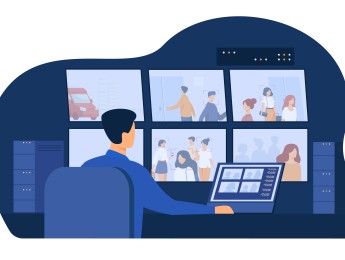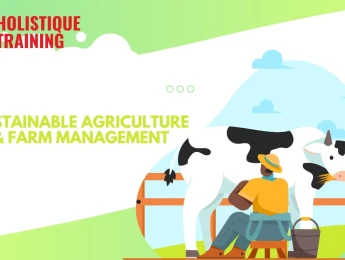As society develops, technology and social platforms have greatly increased. Social platforms are a great tool for individuals and organisations to engage in communities and gain knowledge and understanding surrounding various topics. Rural communities can also greatly benefit from social platforms, as they would allow them to increase their community engagement drastically.
Rural communities can often need to catch up as city communities develop much quicker, but with the correct utilisation of social platforms, they can rapidly match their development. Community engagement is crucial for any industry to grow, allowing organisations or businesses to reach out to similar organisations and create professional relationships. These relationships can benefit both parties, allowing them to work together, provide one another with services, and develop partnerships.
Furthermore, social platforms allow for immense income diversification, which is highly encouraged within rural livelihoods. Social platforms allow for greater business advertising in a much more affordable way, and individuals can offer various services that can reach beyond their specific location. Due to their accessibility, these methods can also be much more sustainable for those in rural communities.
Upon completion of this course, participants will be able to:
- Understand the importance of social platforms within the agriculture industry.
- Analyse the multidimensional nature of rural livelihoods and how they are vital for society.
- Explain the internal and external factors that may influence rural livelihoods.
- Describe what social platforms are and what their influence is on organisations.
- Explore community engagement and social platform management to increase public support.
- Utilise social platforms as a method of income diversification to increase industry sustainability.
- Implement various strategies for promoting economic improvement, social awareness, and daily functions.
- Foster collaboration between stakeholders and agricultural workers.
This course is designed for anyone working within a rural community or those who wish to develop their knowledge of social platforms and rural livelihoods. It would be most beneficial for:
- Community Engagement Managers
- Rural Planners and Surveyors
- Rural Projects Officers
- Business Owners
- NGO Leaders
- Rural Consultants
This course uses a variety of adult learning styles to aid full understanding and comprehension. Participants will engage in various case studies to highlight key challenges faced within rural livelihoods and calculate various solutions using social platforms.
To promote full comprehension of the taught content, the participants will participate in various learning exercises to gain a well-rounded understanding. Through presentations, group discussions, practical activities and role-playing activities, the participants can develop their knowledge and demonstrate all relevant practical skills.
Day 5 of each course is reserved for a Q&A session, which may occur off-site. For 10-day courses, this also applies to day 10
Section 1: Fundamentals of Rural Livelihoods
- Defining what a rural livelihood is and what roles are included.
- Understanding the necessity and importance of the agricultural industry nationally and internationally.
- Examining internal and external influences within the industry and how these impact agricultural workers.
- What society functions and processes are intertwined within the agricultural industry.
- Identify challenges commonly faced by rural communities and how social platforms grant possible solutions.
Section 2: Community Engagement
- Exploring how community engagement can improve rural livelihoods.
- Describing the 3 C’s of community engagement and their purpose – collaboration, consultation and communication.
- Open and honest communication to generate understanding and empathy from stakeholders.
- Raising awareness on issues within the industry and presenting solutions.
- The importance of educating community members and including them in the agricultural conversation.
Section 3: Social Platforms
- Evaluating the use of social platforms for fostering economic empowerment in rural communities.
- Engaging with other rural communities on social platforms to form beneficial relationships.
- Utilising social platforms as a method of advertisement and promotion.
- Prioritising income diversification – online stores and sponsorships.
- Identifying rural value chains and how to incorporate these into organisational processes.
Section 4: Sustainable Livelihood
- Assessing livelihood assets and vulnerabilities within rural communities.
- Aligning sustainable practices with resilience and adaptation.
- Utilising social platforms to increase sustainable practices by collaborating with communities and other rural organisations.
- Exploring various methods and techniques of increasing sustainable practices.
Section 5: Stakeholder Engagement
- The vitality of actively engaging with stakeholders.
- Identifying the different stakeholders within the rural organisation.
- Understanding how collaboration can drastically improve rural functions and leads to income diversification.
- Building relationships and establishing partnerships among government agencies, NGOs and local communities.
- Create goals and objectives and detail them within action plans.
Upon successful completion of this training course, delegates will be awarded a Holistique Training Certificate of Completion. For those who attend and complete the online training course, a Holistique Training e-Certificate will be provided.
Holistique Training Certificates are accredited by the British Assessment Council (BAC) and The CPD Certification Service (CPD), and are certified under ISO 9001, ISO 21001, and ISO 29993 standards.
CPD credits for this course are granted by our Certificates and will be reflected on the Holistique Training Certificate of Completion. In accordance with the standards of The CPD Certification Service, one CPD credit is awarded per hour of course attendance. A maximum of 50 CPD credits can be claimed for any single course we currently offer.
- Course Code IND06-103
- Course Format Classroom, Online,
- Duration 5 days














